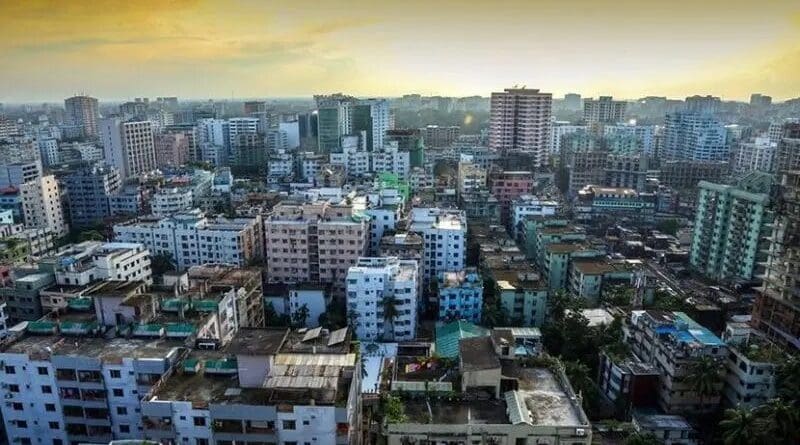United Nations’ Regional Arm Explores A New Financial Landscape For Asia And The Pacific
Mobilizing sufficient financing remains a major challenge to effectively pursue the 2030 Agenda for Sustainable Development, underscored high-level delegates at a UN conference today. Although interest in conventional and innovative financing options is growing among public and private sectors, investments needed to achieve the Sustainable Development Goals (SDGs) continue to remain underfunded.
The Asia-Pacific Conference on Financing for Inclusive and Sustainable Development is co-organized by the United Nations Economic and Social Commission for Asia and the Pacific (ESCAP) and the Government of Bangladesh, in collaboration with the International Chamber of Commerce-Bangladesh and the Asian Development Bank.
In her opening address, United Nations Under-Secretary-General and Executive Secretary of ESCAP Ms. Armida Salsiah Alisjahbana warned that the region is unlikely to achieve any of the SDGs by 2030 in a “business-as-usual” scenario. “ESCAP has estimated that developing countries in Asia and the Pacific should invest an additional US $1.5 trillion per year, or 5 per cent of their combined GDP, to achieve the SDGs by 2030. Today, ambition is the only option in our region,” underscored Ms. Alisjahbana.
The funding gap for countries in South Asia, including Bangladesh, is even higher as 10 per cent of the GDP. Ms. Alisjahbana further emphasized that while mobilizing private financing is essential to unlock enough resources for the achievement of the SDGs, the achievement of many of the Goals will still need additional public funding which requires modernizing tax systems and improving the efficiency of tax administrations.
Delegates at the conference highlighted that given the considerable financing gaps in Asia and the Pacific, developing countries need to mobilize additional financial resources by increasing domestic resources, partnering with the private sector, and enhancing international development cooperation. Financing the SDGs would also need unprecedented coordination and cooperation between the public and private sectors, facilitated by international development agencies and multilateral development banks (MDBs).
Among other areas, the three-day Conference will discuss how to scale up investment and international development cooperation to adequately finance the 2030 Agenda for Sustainable Development in the region. Delegates will also explore how countries can strengthen and diversify financial flows, as well as innovative financing approaches such as taxation, capital markets, non-bank financial schemes, climate finance, small business and supply chain financing, and FinTech solutions. Speakers at the Conference advocated enhancing the financial system at both regional and national levels by addressing the barriers that constrain channelling finance towards sustainable development and leveraging opportunities to increase investment in the SDGs at scale.
The regional Conference was inaugurated in Dhaka by the Honourable President of Bangladesh, Mr. Md. Abdul Hamid. Also present were the Minister of Foreign Affairs of Bangladesh Dr. A. K. Abdul Momen, the Minister of Finance of Bangladesh Mr. A.H.M. Mustafa Kamal, Private Industry and Investment Adviser to the Honourable Prime Minister of Bangladesh Mr. Salman Fazlur Rahman and ICCB President Mr. Mahbubur Rahman. Secretary-General of the United Nations Mr. António Guterres and Former Secretary-General of the United Nations Dr. Ban Ki-moon also participated in the Conference through their video messages. Over 800 government officials and representatives of international organizations, private sector and civil society are participating in the Conference.
The Conference provides a multi-stakeholder forum to build consensus and articulate the views of the region on financing for development issues through high-level regional consultations. The Conference not only enhances sharing knowledge and best practices among the participants to facilitate SDG funding but also ignites the discussions on new policy and cooperation frameworks at the regional level to facilitate financial resource mobilization to achieve the 2030 Agenda.

